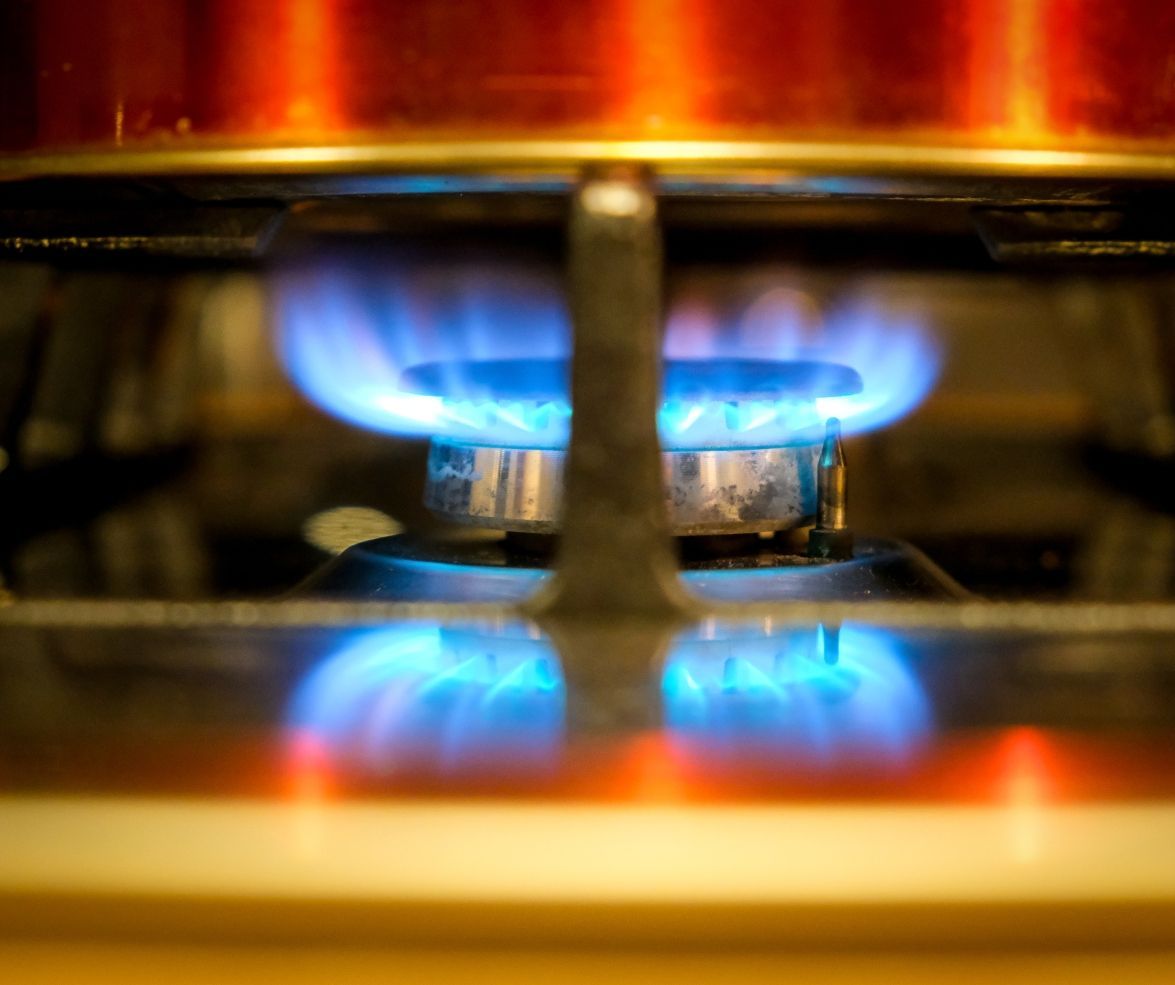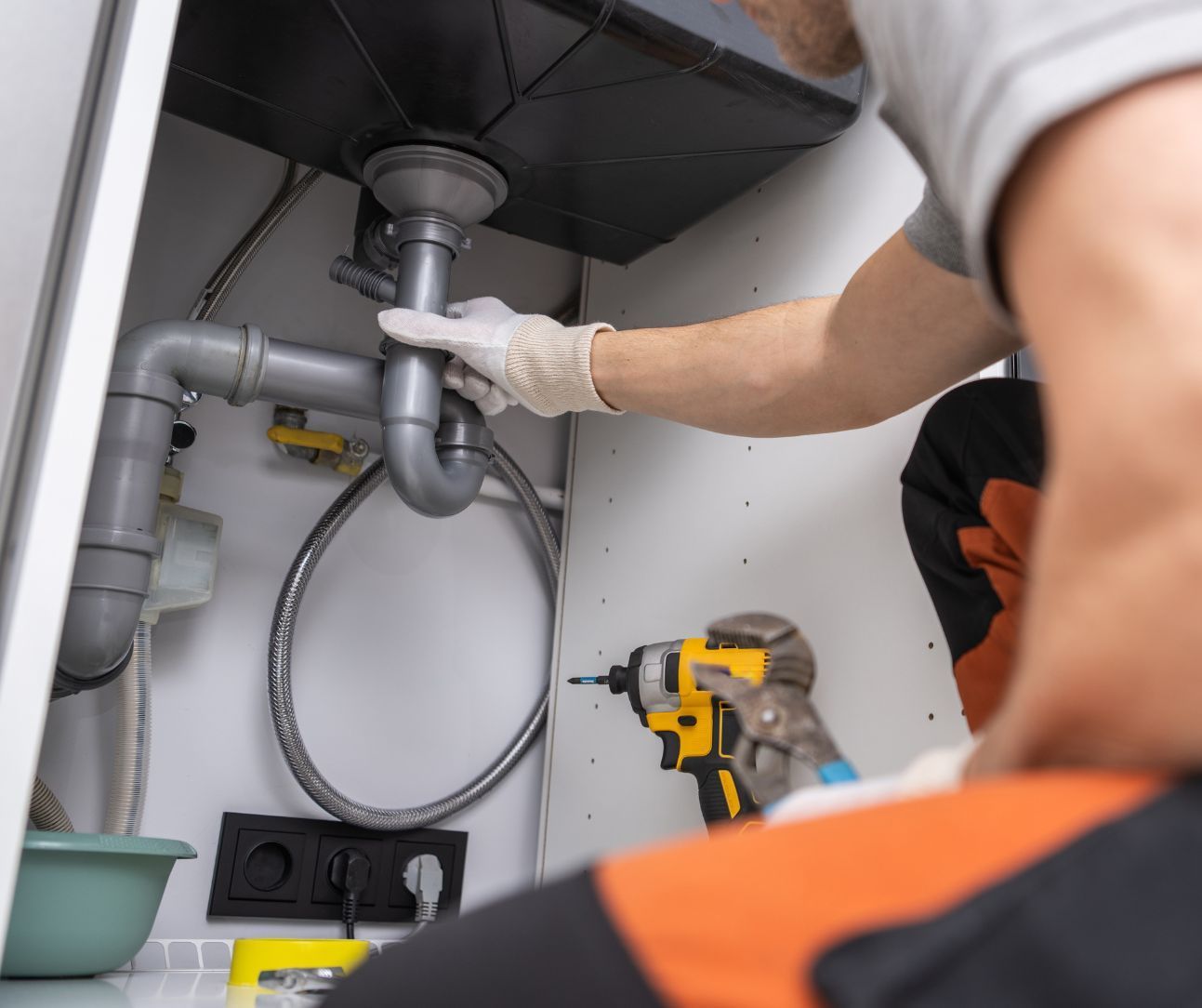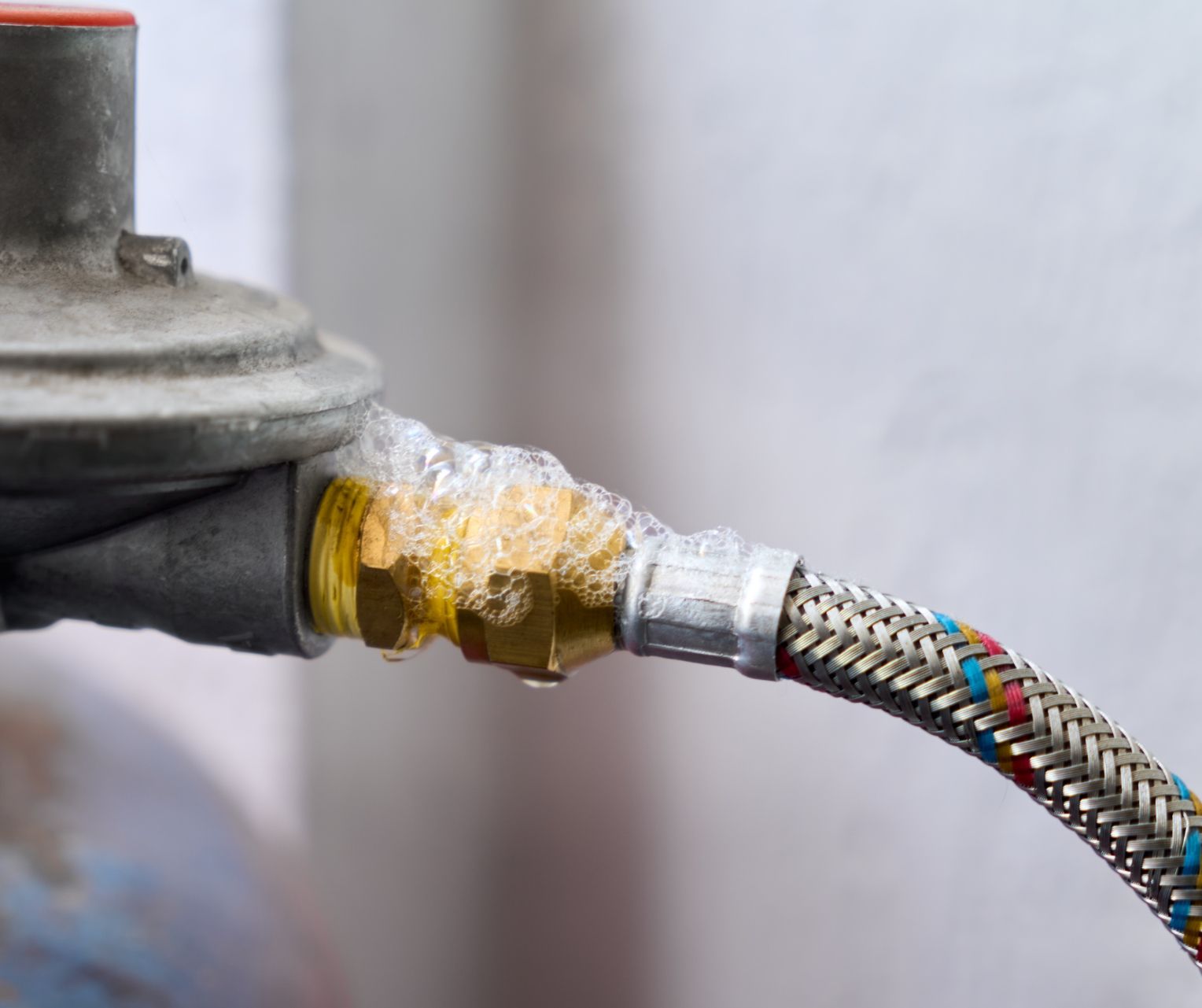8 Major Plumbing Issues After a Cyclone Hits
Aussies are no strangers to wild weather, and in recent years, there's been a noticeable rise in concerns about plumbing systems taking a hit after big storms. Take Cyclone Alfred, for example. When it swept through the northeast coast of Australia not too long ago, plenty of locals were left dealing with unexpected plumbing.
What many don’t realise is how much pressure a storm puts on plumbing. Strong winds can knock pipes loose. Torrential rain soaks the ground, causing it to shift and crack underground lines. Gutters and stormwater drains can get choked with debris, struggling to keep up with the sheer volume of water. It all happens fast and if you’re not ready, it can hit your home or business hard.
Understanding what to check for before and after a cyclone is important for protecting your property and plumbing system. Take a good look at this guide on the most common plumbing issues after a cyclone and how to stay ahead of them.
Plumbing Issues After a Cyclone
A cyclone can do more than uproot trees and tear off roofs. It can wreak havoc with your plumbing. Strong winds, pounding rain and flying debris, all add up to serious trouble for pipes and drains, especially anything exposed outdoors.
Your plumbing isn’t built to handle too much flooding, shifting ground or large bits of debris crashing into it. When that happens, your pipes and drains can get bent, cracked or completely broken. Once there’s a weak spot in the system, it doesn’t take much for leaks to form, water pressure to drop or even for contaminated water to backflow into your home or business, all of which can lead to costly repairs, long-term damage, mould growth or even health risks if not addressed early. That’s why addressing cyclone plumbing problems is not something to brush off.
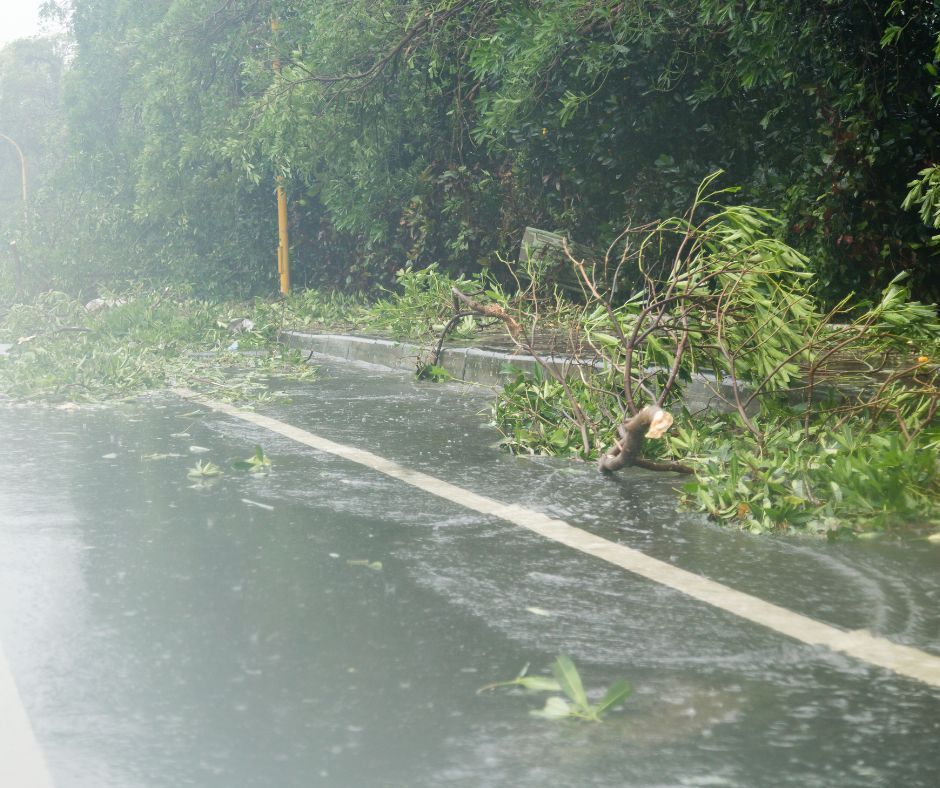
Aftermath of a Cyclone: Plumbing Problems
The damage might not show up straight away, but trust us, it’s there. Some of the most common plumbing issues you might be dealing with after a cyclone hits your area includes:
Water Leaks
The force of a cyclone can cause cracks in pipes, especially when the ground shifts or debris impacts the plumbing. These leaks can lead to water wastage and significant property damage if left unchecked.
Water Heater Issues
Power outages or flooding from heavy rains can damage the internal components of water heaters. It may result in no hot water or leaks from the unit, requiring costly repairs or replacement.
Flooding Stormwater Drains
Heavy rainfall can flood stormwater drains, making them unable to handle large volumes of water. This can cause water to pool around the property, potentially leading to flooding and damage to the foundation.
Broken Pipes
The movement of soil, tree roots or debris from the cyclone can cause pipes to snap or become crushed. These breakages can lead to water loss and require immediate attention to restore the system.
Blocked Drains and Sewer Line Backups
Debris from fallen trees, branches and other materials can clog drains and worse, collapse sewer lines. In extreme cases, backflow from overwhelmed sewer mains can lead to health hazards and unpleasant odours.
Water Contamination
Damaged plumbing or water sources can allow dirt, bacteria or other contaminants to enter the water supply. If not fixed quickly, this can pose serious health risks to residents.
Low Water Pressure
When pipes are damaged or leaks occur, the water pressure in the system can drop significantly. This can lead to inefficient water use and inconvenience for residents and businesses.
Gas Line Leaks
Ground shifting or falling trees can crack underground gas lines. This can create dangerous situations, such as gas leaks, posing a fire or explosion hazard.
Why Get a Professional Inspection After Cyclone Plumbing Damage
Even if everything seems fine, a thorough inspection can save you from a lot of trouble later on. Here’s what licensed plumbers look for and why it’s worth getting your plumbing system checked after a cyclone:
Comprehensive Checks
A licensed plumber can assess your cyclone plumbing damage to find hidden issues that might not be immediately visible. This helps make sure that no potential problems are overlooked, preventing future damage or costly repairs.
Timely Repairs
Post-cyclone inspections allow plumbers to tackle plumbing issues after a cyclone before they escalate. Early intervention helps prevent further disruption to your home or business while saving time and money.
Leak Detection
Professional plumbers use advanced tools to detect underground or unseen leaks that may not be immediately apparent. Identifying these leaks early can prevent water wastage and structural damage.
Preventative Maintenance
Inspections help identify weak spots in your plumbing system that may fail in future storms. Addressing these issues proactively can reduce the risk of damage during the next cyclone.
Safety Assurance
Plumbers make sure that any gas line problems or water contamination risks are addressed appropriately. This is critical for safety, as damaged gas lines or contaminated water can pose significant health hazards.
Insurance Reporting
A professional inspection provides accurate documentation of cyclone-related plumbing damage, which is important for insurance claims and getting the compensation you may need for repairs or replacements.
Restoring Water Efficiency
Plumbers can fix drops in water pressure and resolve supply issues caused by the cyclone to your home or business.
How to Minimise the Effect of the Cyclone Plumbing Problem
A bit of prep before cyclone season can save you a heap of headaches later. Follow these simple steps to help protect your property:
1. Shut Off the Main Water and Gas Before the Storm
Turning off the main water and gas supply reduces the risk of burst pipes or leaking lines during the cyclone.
2. Clear Outdoor Drains and Gutters
Removing debris from outdoor drains, downpipes and gutters helps prevent overflows and blockages that could cause flooding during heavy downpours.
3. Secure Exposed Plumbing Fixtures
Protecting outdoor taps, hoses and pipe networks reduces the likelihood of damage from flying debris or high winds.
4. Install Backflow Prevention Devices
Installing backflow prevention devices stops sewer water from flowing back into the property, which helps prevent contamination.
5. Schedule a Pre-Season Plumbing Check
Getting a professional plumbing check before the cyclone season allows you to identify and address vulnerable areas early.
6. Keep a Licensed Emergency Plumber’s Contact Ready
Having the contact details of a licensed emergency plumber makes it easier to act quickly when cyclone plumbing damage occurs during or after a storm.
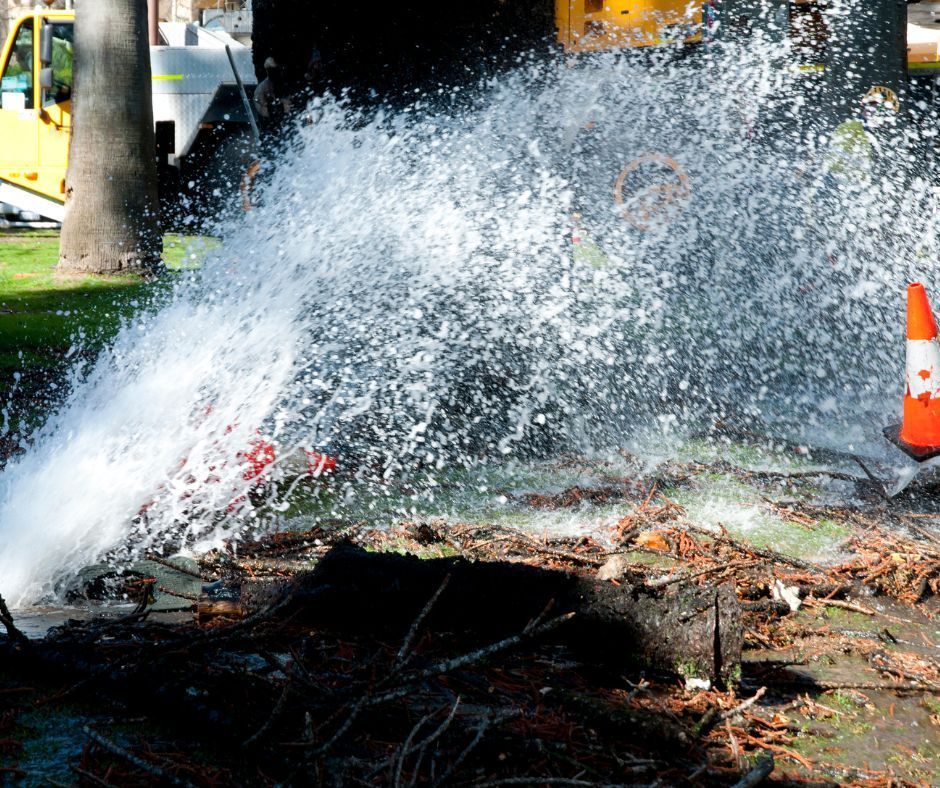
Cyclones can turn your plumbing upside down. Leaving any cyclone plumbing problem too long can cost more, damage your property, and even affect your health. When this happens, having a team that knows what to look for and how to fix it fast means less stress, damage, and interruption.
Eze-Flow Plumbing offers expert post-storm plumbing inspections, repairs, and emergency services across the North Shore, Northern Beaches,and nearby areas. We’ve seen the worst of it and know how to get your property safe and working again, quickly and properly.
Give us a ring today to book a cyclone plumbing damage check or emergency visit.



